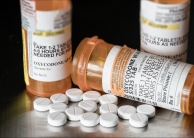Featured Article:Placebo Administration to Depressed Patients: An Analysis of the Ethics of the Placebo in Clinical Practice
By
2012, Vol. 4 No. 04 | pg. 2/2 | « Informed Consent: A Potential Method of Eliminating Deception The argument that the placebo effect is caused by the doctor-patient relationship is beginning to stem from and be strengthened by relatively new and unexplored studies on informed consent. Because the AMA discourages the administration of placebos in clinical practice due to its deceptive factor, doctors and researchers are beginning to look into the possibility of administering the placebo with informed consent without compromising the benefits of the placebo effect. In addition, as Dr. Cahana and Dr. Ramagnioli discuss in their paper “Not All Placebos are the Same: A Debate on the Ethics of Placebo Use in Clinical Trials Versus Clinical Practice,” the placebo should fall in line with current ethical guidelines, because the inert medication “endangers the foundation of care and trust between patients and physicians and is thus morally unacceptable” (104). However, if patients provide informed consent before the placebo is administered, then the doctor has not lied to the patient and trust is still built between physician and patient. Thus, if informed consent was possible to obtain, then the primary cause of the ethical controversy in placebo administration—deception—could potentially be diminished and the fragile doctor-patient relationship could be preserved. In their 1965 study “Nonblind Placebo Trial: An Exploration of Neurotic Patients’ Responses to Placebo When its Inert Content is Disclosed,” Dr. Park and Dr. Covi told patients the entire truth about the placebo as they administered it—in essence obtaining informed consent—to fourteen neurotic patients (337-338). As a result of this study, “many of the… patients appeared satisfied with the treatment” (342), and a calculation of ratios found that there was a total of 36% improvement in neurotic symptoms (338). From this data, the authors suggest that a placebo delivered with informed consent can still produce a significant placebo effect. However, as Dr. Blease claims in her paper “Deception as Treatment: The Case of Depression,” this study’s results are suspicious because there was no control group tocompare the placebo group (14). Not only that, but the sample size was only fourteen patients, which brings into question the representative nature of the results to a larger population of patients (14).Nearly fifty years later, in a more well-designed experiment by Harvard University’s Dr. Kaptchuk and his colleagues—“Placebos Without Deception: A Randomized Controlled Trial in Irritable Bowel Syndrome,”—a control group to compare the placebo group to was included (2).In this study, the researchers administered placebo pills to patients with Irritable Bowel Syndrome (IBS), telling these patients that the treatment being prescribed was an “inert or inactive pill, like sugar pills, without any medication in it” (2). Even with informed consent, the researchers were able to induce a placebo effect to help reduce the severity of symptoms for many of these IBS patients (4-5). Compared to the control group of IBS patients who did not receive any sort of treatment at all, the patients in the placebo group showed statistically significant improvement—with p-values ranging from 0.002 to 0.08, depending on the assessment measure used to compare the two groups (5). In addition, because the interaction between doctors and patients was the same in the no treatment group and the placebo group, the placebo was most likely the reason for the difference in the proportion of patients feeling adequately relieved between the two groups (6). As a result of this experiment, the authors believe that “harnessing the placebo effects without deception is possible...” (6), given that patients are educated on the placebo effect, are encouraged by their physicians, have a “positive but realistic expectancy” (6), and follow the directions of pill taking. Due to their findings, Dr. Kaptchuk and his team created an experiment that “points to a potential novel strategy that might allow the ethical use of placebos consistent with evidence-based medicine” (6). Another possibility that removes the deceptive placebo administration is for doctors to only partially tell the truth about the placebo to their patients. In doing so, they are not completely deceiving the patient but at the same time ensuring that a placebo effect will be induced by telling only part of the story.Dr. Brody suggests just that in his study “The Lie that Heals: The Ethics of Giving Placebos,” claiming that if a doctor “administers the [placebo] pill with a noncommittal statement, such as, ‘This pill will make you feel better,’ he has not deceived the patient” (114). However, there is one major argument against informed consent that must be addressed. Some scientists believe that placebos should not be administered in clinical practice at all, whether or not informed consent is obtained. Dr. Rothman of Boston University and Dr. Michels of Harvard University contend in their article “The Continuing Unethical Use of Placebo Controls,” that doctors “should not put patients in a position in which their health and well-being could be compromised, even if the patients agree” (397). However, because the placebo only plays a small part of the treatment process, a patient’s health will not truly be compromised if all other factors—most importantly the confidence and encouragement of the doctor—are kept the same as they are when active medications are administered. Patient Expectations and their Validity in the Face of Informed ConsentWith the possibility of informed consent in placebo administration, the long-established belief that patient expectations play a role in the placebo effect becomes questionable. Because patients are in a clinical setting and are encouraged by their doctors during the treatment process, they typically have high expectations for whatever treatment is given to them—even if that treatment is the placebo. Many previous researchers have proposed that expectations are at least part of the reason—if not the primary reason—why the placebo effect occurs. Dr. Cahana and Dr. Romagnioli claim that the placebo response is strongly influenced by “conditioning, expectancy, and subject attention” (103). Furthermore, Dr. Foddy—a Harold T. Shapiro Postdoctoral Research Associate in Bioethics at Princeton University who wrote the analysis “A Duty to Deceive: Placebos in Clinical Practice”—goes even further by claiming that the placebo effect is “generated by the manipulation of patient expectations” (7)—suggesting that patient expectations are the primary factor in the placebo effect. Finally, Dr. Fuente-Fernandez and Dr. Stoessl seem to sum up the current belief in patient expectations in their paper “The Biochemical Bases of the Placebo Effect” by clearly stating that “any treatment… can potentially have a beneficial effect simply because the patient perceives that he/she is being treated” (144) and that “it is the belief that an effective treatment is being administered that set in motion a series of (biochemical) mechanisms” (143-144) in depressed patients. As such, not only the placebo response but also the benefits seen due to active medications have been previously been thought to be caused by patient expectations. However, the presence of a placebo effect even with informed consent invalidates the possibility that expectations play a role in the placebo effect. If a patient with depression is told that he or she is receiving a medication that contains no active ingredients, then he or she will not have any expectations of benefit from the placebo; if anything, the patient will have negative expectations and thus experience an increase in severity in his or her condition, a phenomenon known as the “nocebo” effect (Foddy 5). The reason the nocebo effect did not occur—or did not seem to occur—based on Dr. Kaptchuk’s study, however, is because of the “warm patient-provider relationship” (Kaptchuk 6). Even though the doctors told the IBS patients that they were receiving an inert medication, they were still highly encouraging and confident in front of the patients (Kaptchuk 6), which apparently trumped the lack of expectations that the patients felt. Rather than validate the belief in expectations, Kaptchuk’s study on informed consent actually further strengthensthe belief that the doctor-patient relationship plays a fundamental role in the placebo effect. As Dr. Park and Dr. Covi claimed in their 1965 study, indeed, the “belief in pill as drug [is] not a requirement for improvement” (344). Is the Placebo Ethical in Clinical Practice?This review suggests that the placebo is indeed ethical in clinical practice. The placebo response rate has been proven to be high for antidepressants, suggesting that the placebo is strong enough to be a treatment option for patients with depression. Not only that, but because the placebo has some sort of physiological mechanism of action in depressed patients—likely to be associated with the prefrontal region of the brain—the legitimacy of the placebo is somewhat increased because it acts almost like an active drug. Furthermore, the doctor-patient relationship plays such a large role in promoting the placebo effect—so much that it invalidates the previously established argument that expectations promote the placebo effect—so the placebo would only be a small portion of a larger treatment process that helps patients feel better. The current ethical guidelines established by the American Medical Association (AMA) must be changed in order to make the placebo ethical in clinical practice and thus make it available to doctors as a treatment option for patients with depression. In the face of evidence to support the validity of the placebo, traditional ethical guidelines must be overlooked and replaced with a new host of guidelines. The primary issue associated with the AMA’s ethical guidelines about placebo administration in clinical practice is that they are somewhat vague and even contradictory. According to Dr. Blease, the AMA seems to “provoke more questions than it answers” (14) based on its statements about the negative impact placebos could make on the doctor-patient relationship. However, as she asserts, the placebo is “inherently illusory” (14)—even though there is some new evidence arising suggesting the possibility of inducing a placebo effect with informed consent—and cannot promote any sort of beneficial placebo response without at least a little bit of deception (14). Because of this, ethics committees, particularly those of the AMA, must be more aware of the necessity for deception in the treatment of depressed patients, as depression—a disorder of the mind and emotions, a condition of psychological origins—cannot effectively be treated by biological means alone. In addition, Dr. Foddy asserts that the AMA should remove the prohibition on placebos and create a new regulation to limit—though not unconditionally allow—deceptive administration of inert medications (11). In addition to making the AMA’s guidelines more open to placebo use, there is still one valid argument against the administration of placebos in clinical practice, and this argument must be taken into account when reassessing the ethics of placebos.Dr. Rothman and Dr. Michels argue that though a placebo may actually be harmless, from an ethical standpoint administering an inert drug “runs counter to the ethical principle that every patient… should receive either the best available treatment or a new treatment thought to be as good or better” (397). Their analysis suggests that the placebo cannot ethically be prescribed when active treatment options are available. In order to address this argument, ethical guidelines can be modified so that placebos may only be prescribed to depressed patients as either a complement to active medication or as monotherapy when active medications are not effectively treating the patient. By establishing those limits on the use of placebos, the medical community can ensure that a certain set of guidelines are followed and placebos are not abused by doctors—that placebos are only used in special situations when there are few other options available. Thus, though the placebo should not be used as a primary treatment option, it should be considered as a possible treatment option. Future InsightsAlthough this review has concluded that the placebo is ethical in clinical practice with regards to depressed patients, more questions than answers have been engendered. First and foremost, more research needs to be done to understand why the placebo has a physiological effect associated with the prefrontal region of the brain. By doing so, the scientific and medical community can gain greater insight on the placebo’s mechanism of action and perhaps be more open to adopting the inert medication in clinical practice once the placebo is better understood. In addition, although Dr. Kaptchuk’s study on informed consent was groundbreaking because it revealed that the placebo effect can still be induced without deception, more research must be conducted to evaluate if the same conclusions can be reached with depressed patients—and perhaps patients with a variety of other psychosomatic conditions. In addition, the sample size of the placebo group in Dr. Kaptchuk’s study was a relatively small thirty-seven patients (Kaptchuk 4), so future research should ensure representativeness by studying larger sample sizes. At this point in time however, because such research on informed consent is not available, the medical community will have to settle for allowing deception in AMA’s guidelines because clinical trials have shown that the placebo does work—even though it may work less efficiently than active antidepressants—and because there does seem to be some sort of physiological mechanism at work, increasing the legitimacy of the placebo as a quasi-active medication. Finally, deeper analyses must be conducted to reevaluate if patients expectations truly help promote the placebo effect—or if the long-standing theory of patient expectations is actually false. Although this review has concluded that the placebo is ethical for depressed patients in clinical practice, the final decision regarding the placebo’s practical use still lies in its acceptance by the medical community. However, as final comment on the ethics of the medical field as a whole, an important fact must be noted: Though active medications have been shown to induce a stronger response than that which the placebo induces, active medications still carry with them the potential for harmful side effects. With side effects such as nausea, insomnia, anxiety, weight gain, and a multitude of other issues (Smith, Robinson, and Segal), antidepressants are not any more perfect or any more ethical as placebos. However, active antidepressants are still used in clinical practice despite these side effects because they are the greatest hope of helping depressed patients. Although the goal of doctors is to treat patients with the least negative impact as possible, they still must settle for less than perfect when they administer antidepressants. The same concept can be applied to placebos, which although inert and deceptive—with more research necessary to actually assess the need for deception—still have the potential to help patients who are struggling through depression. ReferencesAmerican Medical Association. “AMA’s Code of Medical Ethics.” American Medical Association. 29 November 2011 <http://www.ama-assn.org/ama/pub/physician-resources/medical-ethics/code-medical-ethics.page?>. “An Estimated 1 in 10 U.S. Adults Report Depression.” Centers for Disease Control and Prevention. 2011. 19 Nov. 2011 < http://www.cdc.gov/features/dsdepression/>. Blease, Charlotte. “Deception as Treatment: The Case of Depression.” Journal of Medical Ethics 37.1 (2010): 13-16. PubMed. Web. 15 Oct. 2011. Brody, Howard. “The Lie that Heals: The Ethics of Giving Placebos.” Annals of Internal Medicine 97 (1982): 112-118. PubMed. Web. 4 Oct. 2011. Cahana, Alex and Simone Romagnioli. “Not All Placebos are the Same: A Debate on the Ethics of Placebo Use in Clinical Trials Versus Clinical Practice.” Journal of Anesthesia 21 (2007): 102-105. PubMed. Web. 6 Oct. 2011. Foddy, Bennett. “A Duty to Deceive: Placebos in Clinical Practice.” The American Journal of Bioethics 9.12 (2009): 4-12. PubMed. Web. 16 Oct. 2011. Fuente-Fernandez, Raul de la, and Jon Stoessl. “The Biochemical Bases of the Placebo Effect.” Science and Engineering Ethics 10.1 (2004): 143-150. Academic Search Complete. Web. 6 Oct. 2011. Fuente-Fernandez, Raul de la, Michael Shulzer, and Jon Stoessl. “The Placebo Effect in Neurological Disorders.” Lancet Neurology 1.2 (2002): 85-91. PubMed. Web. 9 Oct. 2011. Goodwin, Frederick K. “Predictors of Antidepressant Response.” Bulletin of the Menninger Clinic 57.2 (1993): 146-161. Academic Search Complete. Web. 2 December 2011. Kaptchuk, Ted, Elizabeth Friedlander, John Kelley, M. Norma Sanchez, Efi Kokkotou, Joyce Singer, Magda Kowalcykowski, Franklin Miller, Irving Kirsch, and Anthony Lembo. “Placebos Without Deception: A Randomized Controlled Trial in Irritable Bowel Syndrome.” PLoS ONE 5.12 (2010): 1-7. PubMed. Web. 28 Sept. 2011. Khan, A, Russell L. Kolts, Mark H. Rapaport, K. Ranga Rama Krishnan, Amy E Brodhead, and Walter A. Brown. “Magnitude of Placebo Response and Drug-placebo Differences across Psychiatric Disorders.” Psychological Medicine 35 (2005): 743-749. PubMed. Web. 12 Oct. 2011. Leuchter, Andrew F., Ian A. Cook, Elise A. Witte, Melinda Morgan, and Michelle Abrams. “Changes in Brain Function of Depressed Subjects during Treatment with Placebo.” The American Journal of Psychiatry 159 (2002): 122-129. PubMed. Web. 6 November 2011. Lichtenberg, Presach , Uriel Heresco-Levy, and Uriel Nitzan. “The Ethics of the Placebo in Clinical Practice.”Journal of Medical Ethics 30.6 (2004): 551-554. PubMed. Web. 20 Sept. 2011. Mayberg, Helen S., J. Arturo Silva, Steven k. Brannan, Janet L. Tekell, Roderick K. Mahurin, Scot McGinnis, and Paul A. Jerabek. “The Functional Neuroanatomy of the Placebo Effect.” American Journal of Psychiatry 159 (2002): 728-737. PubMed. Web. 27 Oct. 2011. Park, Lee C and Lino Covi. “Nonblind Placebo Trial: An Exploration of Neurotic Patients’ Responses to Placebo When its Inert Content is Disclosed.” Archives of General Psychiatry 12 (1965): 336-345. PubMed. Web. 27 Oct. 2011. Rief, W, Y. Nestoriuc, S. Weiss, E. Welzel, A.J. Barsky, and S.G. Hofmann. “Meta-analysis of the Placebo Response in Antidepressant Trials.” Journal of Affective Disorders 118 (2009): 1-8. PubMed. Web. 7 November 2011. Rothman, Kenneth. “The Continuing Unethical Use of Placebo Controls.” The New England Journal of Medicine 331.6 (1994): 394-398. PubMed. 29 November 2011. Shorter, Edward. “A Brief History of Placebos and Clinical Trials in Psychiatry.” Canadian Journal of Psychiatry 56.4 (2011): 193-197. Academic Search Complete. Web. 2 December 2011. Smith, Melinda, Lawrence Robinson, and Jeanne Segal. “What You Need to Know About Antidepressant Medication.” Helpguide. 2011. 2 December 2011 < http://helpguide.org/mental/medications_depression.htm>. Straus, Joshua L. and Stephanie Von Ammon Cavanaugh. “Placebo Effects. Issues for Clinical Practice in Psychiatry and Medicine." Psychosomatics 37.4 (1996): 315-326. PubMed.Web. 4 Oct. 2011. Walsh, Timothy B, Stuart N. Seidman, Robyn Sysko, and Madelyn Gould. “Placebo Response in Studies of Major Depression: Variable, Substantial, and Growing.” Journal of the American Medical Association 287.14 (2002): 1840-1847. PubMed. Web. 27 Oct. 2011. World Medical Association. World Medical Association Declaration of Helsinki: Ethical Principles for Medical Research Involving Human Subjects. October 2008, Seoul. Seoul: World Medical Association, 2008. Print. Zieve, David, and David B. Merill. “Major Depression.” PubMed Health. 2011. A.D.A.M. 19 Nov. 2011 <http://www.ncbi.nlm.nih.gov/pubmedhealth/PMH0001941/>. Suggested Reading from Inquiries Journal
Inquiries Journal provides undergraduate and graduate students around the world a platform for the wide dissemination of academic work over a range of core disciplines. Representing the work of students from hundreds of institutions around the globe, Inquiries Journal's large database of academic articles is completely free. Learn more | Blog | Submit Latest in Health Science |


















